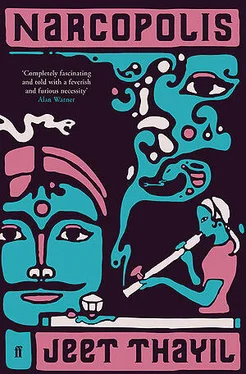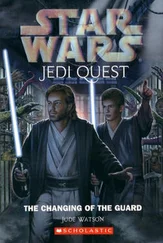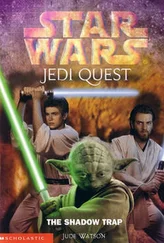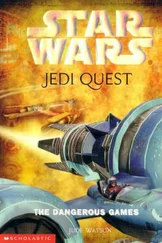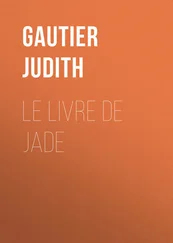Salim handed two bottles of Johnnie Walker to Rashid, who checked that the seals hadn’t been tampered with and there were no punctures in the caps. He held the bottles up to the light to examine the colour and Salim asked if he’d seen the new Amitabh Bachchan movie, Polyester Khadi , in which Bachchan played a policeman’s son who becomes a criminal because he sees how hard his father’s life is. Rashid said no, he hadn’t seen it and he wasn’t planning to, he had better things to do than watch Amitabh fucking Bachchan. Salim said the best scene in the film was the showdown between policeman father and gangster son.
‘You know what he tells his father, played by the veteran, Sanjeev Kumar?’
In response, Rashid spilled a small mountain of powder on the mirror and looked up, the hundred-rupee note aloft in his hand. Salim stood up to say the line, delivering it in a bored baritone very much like the tall actor’s. ‘ Are you a man or a pyjama ?’
Rashid said, ‘And what is Sanjeev fucking Kumar’s reply?’
Salim got up again.
‘ If I am a pyjama at least I am cent per cent Indian khadi, not American polyester .’
*
Rashid bent to the mirror and he was startled by the sight of his face up close, blue veins swollen at the temple, skin the colour of clotted milk, a sickly sap of green stubble on the jaw. His hair was too long, almost as long as Salim’s, he needed a cut and shampoo. Paan had stained his mouth a permanent red. Worst were his eyes, bloody and clouded at the same time. Then he felt the back of his throat go numb. There was a close thump in his ears. He rubbed a bit of powder into his gums and a wave of nausea hit him and he looked away from his degraded image. But there was half a line still left on the mirror. He snorted it up. His heart beat so erratically and so fast he was sure it would leap right out of his chest and land on the glass-topped desk.
‘Bhai, that chanduli at your khana, Dimple, who makes pipes.’
‘What?’
‘Dimple.’
‘What about her?’
‘She makes pipes in your khana.’
‘I know what she does, she works for me.’
‘She’s a hijra, right? She was a man once?’
‘Long ago. Her dick was probably bigger than yours.’
‘So what I was wondering, bhai, is why she looks so feminine. I mean, if you didn’t know she was a hijra you’d think she was fully a woman.’
‘Listen, Salim, you’re so interested, you should ask her yourself, take her out to a movie, introduce her to your family. She likes boys like you.’
*
Rashid walked back to the khana with the bundle of vials and the bottles of Johnnie Walker in his hands. He was calmer now. Even the heat seemed milder, the sun directly overhead but not uncomfortable; and the noise in his head had settled into a hum, steady and controlled, like paper burning in a tray. His white shirt lay open to the sternum and his pants were hitched low on his belly. He wore only white. He spotted the colour on the mannequins in store windows and people on the street and to him the figures in white were as distinctive as angels among the earthbound.
He was thinking of Salim’s line, Are you a man or a pyjama? He wanted more options than just the two. His father said they were descended from the Mughals, from a Beg who’d ridden with Humayun. There was a branch of the family in Delhi that had owned sixteenth-century buildings and gardens. It was a family legend that he mistrusted, but every now and then he would catch himself thinking of the Mughals and the majoun they liked to eat, swallowed with a glass of milk like medicine, and he’d see himself as a new Mughal, mixing it up, juggling the booze with the coke and charas and chandu. This morning he was planning to take it easy. He’d keep the whisky down to manageable quantities, a half bottle, no more, and then the rest of it would be manageable too: line of White first thing to get his eyes open, pyali of Black at regular intervals to keep his nerves easy and his ideas oiled, and, around the time the muezzin sent out the evening call, a bit of Brown chased on foil or smoked in a cigarette, the powder caked so heavy the joint would have to be lit and relit. This is the new thing, brown powder, garad heroin with the compliments of the Pakistani government, something sweet for the mouth from our Muslim brothers; the question being, what kind of government would see anything in heroin but poison? Which god would welcome such a drug? Not the Hindu gods and not even the god of the Christians. So what did it mean that the Pakistanis, who worshipped the same God as he, were sending garad to India? It meant that politics, or economics, overrode every other thing in the world. They shared the same faith, but in other ways they were enemies. Above all, the Pakistanis were sworn enemies.
Guide thou us, thou, who are round about the infidels.
He had been a believer for most of his life, had observed the five prayer times and followed the dietary strictures. Then he’d exchanged one habit for another, he’d given up God and accepted O. With heroin he’d opened himself to the ungodly and for this he would pay, he knew. He would be seized by the feet and flung into the fire. Because the powder was a new thing, the devil’s own nasha. Rashid knew it the first time he saw street junkies bent over strips of tin foil, the way they sucked at the smoke, the instantaneous effect of it, how it closed their eyes and shut them off from their own bodies and the world. He saw them and thought: This is it, the future, coming too fast to duck. And now he was doing the same. And he was helpless against God’s great wrath.
*
He rounded the alley to the khana and there was his son at the beedi shop buying cigarettes. Jamal saw the speed at which his father approached and he looked wildly around the alley. Rashid grabbed the boy by the wrist and squeezed until he dropped the cigarettes. The cigarette wallah said, Bhai, he didn’t have money so I gave him on credit, I thought it was for you. Rashid looked at his son’s face, the stupidity and stubbornness of it, and rage filled his chest with carbon.
‘Six years old and you’re on the street, fucking smoking.’
He crushed the cigarettes in his hands and let the debris fall to the ground. He caught his son by the neck and propelled him into the building. When the boy stumbled, he wanted him to fall and break something. He wanted to hear something break inside his son. Jamal was terrified but his fright only made Rashid angrier.
‘Get up those stairs. Go on or I’ll kill you.’
He looked at his hands and was surprised to see he was still carrying the bottles of whisky and the cocaine. He put the bottles on the ground, carefully, giving his entire attention to the action, but he was unable to clear his head. He heard his son make small sounds that seemed to come from far away, or from a tunnel, a narrow tunnel that smelled of fresh mutton. Then Rashid heard crows, sudden caws from directly above him though there were no birds in the building or even in the sky outside. He made a fist around the vials in his hand and hit the boy on the head and Jamal sat in the dust of the stairwell, his sobs audible in the street. Rashid stood over him, shoulders heaving, and hit him again. Then he saw the beediwallah and his customers staring at him from the doorway. What? he said to them, his rage now mixed with shame, and when the men disappeared, he put the cocaine in his pocket, picked up the whisky and used his free hand to drag the boy up the stairs.
It was too early for customers. When Rashid arrived, agitated and muttering to himself, only Dimple and Bengali were in the khana. The old man kept his accounts and looked after the shop, and had been with him since the early days, when Rashid was a tapori selling charas near Grant Road Station. Bengali spent most of his time locking and unlocking a tin box that served as the register, putting in money, paying it out. He’d been working for Rashid for many years, and no one knew anything about his life before he came to Shuklaji Street, except that he’d once been a clerk in a government office in Calcutta. He was between fifty and seventy, wrinkled skin on bone, and he spoke English with an affected British accent.
Читать дальше
